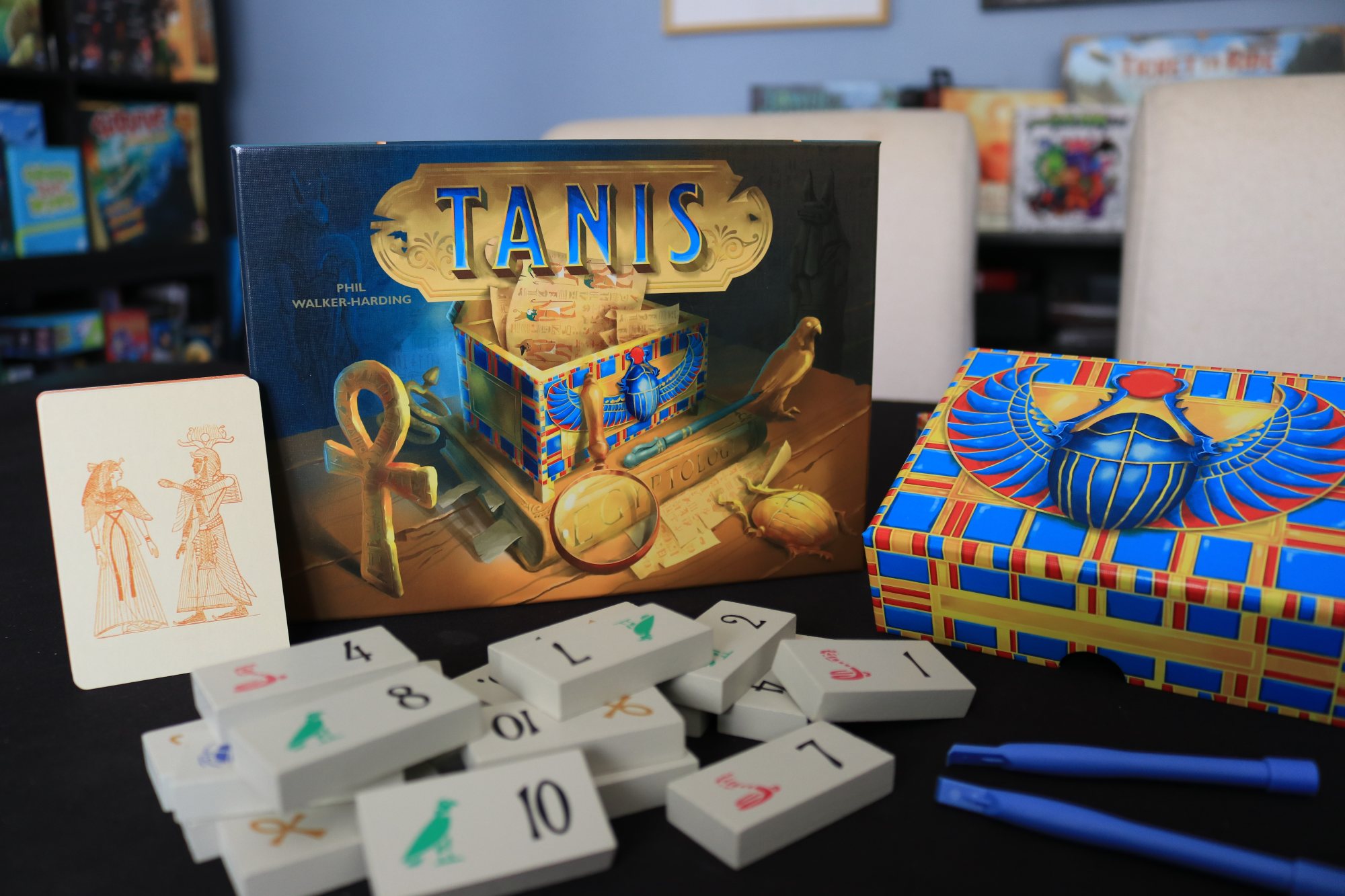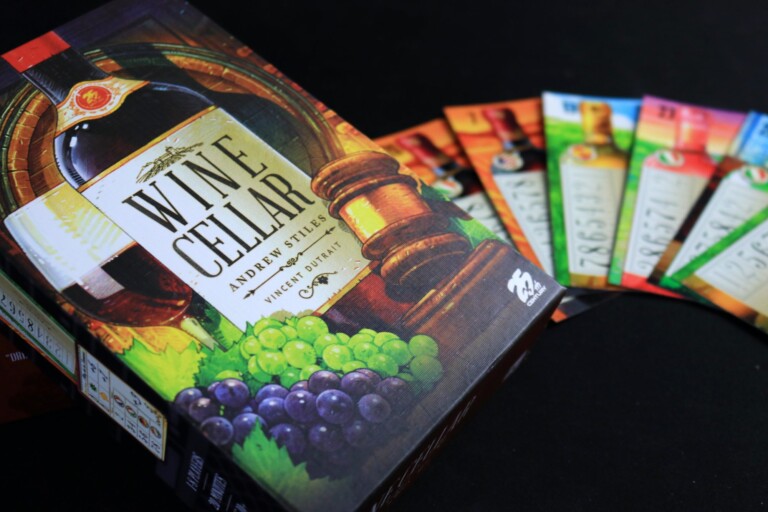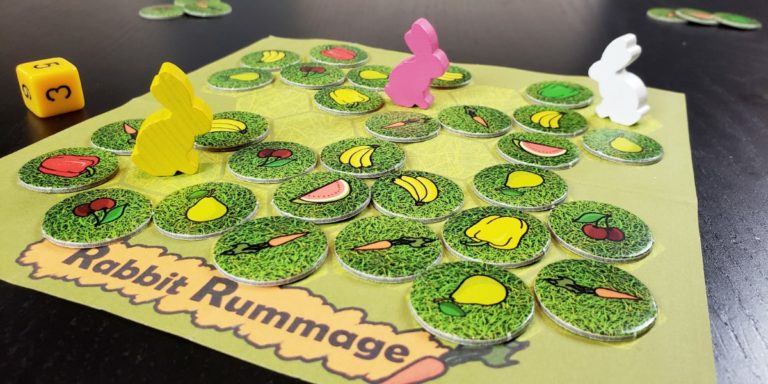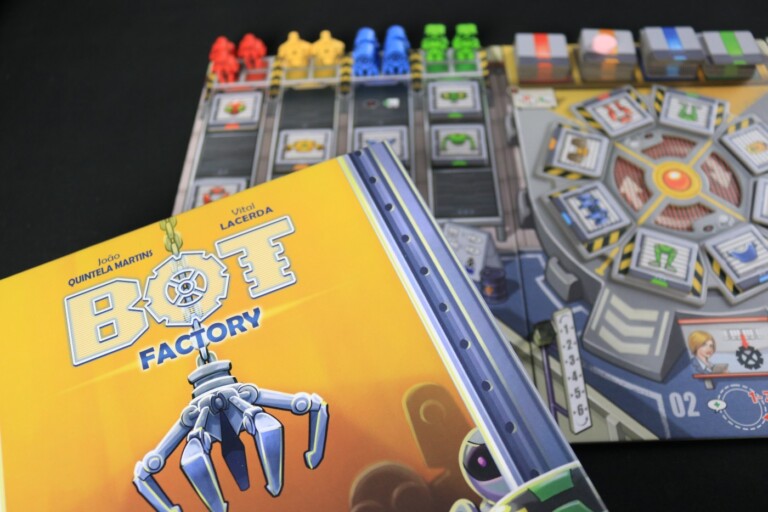There are a handful of game designers that I get excited to check out when a new game hits the market. Tanis is an Egyptian themed tile-digging game from Phil Walker-Harding, one of these designers that I gravitate toward. This 2-player game published by Eagle-Gryphon Games uses wooden domino style tiles in a clever way.
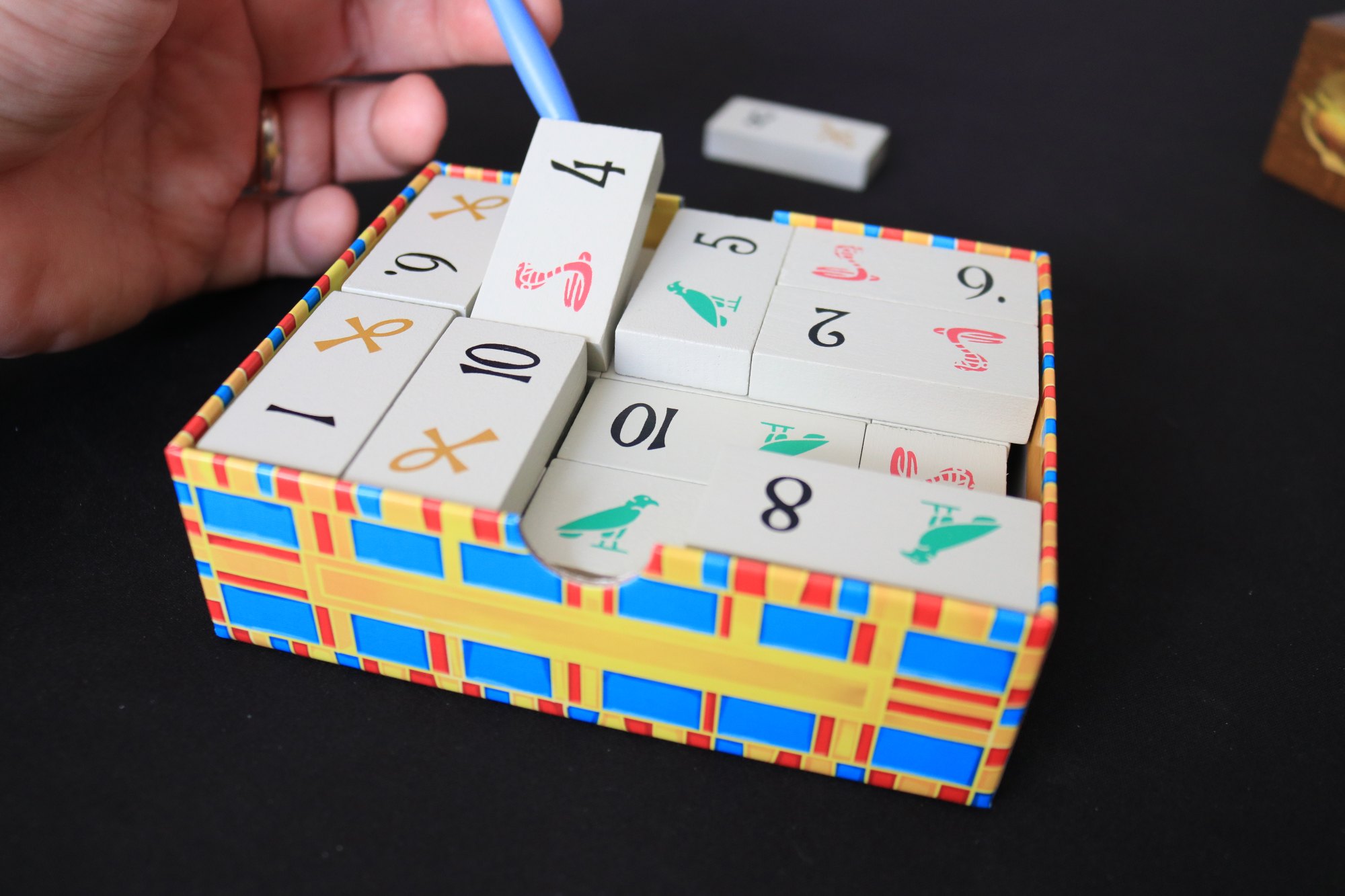
Can You Dig It?
In Tanis, players take turns choosing a tile that is fully revealed from a box in the center of the table. These domino style tiles each contain a number and symbol. At the start of the game, only 10 tiles are visible at the top of the box. As tiles are removed, more tiles are revealed as players look for specific tiles to complete sets of tiles for points.
Players use plastic digging tools that make excavating these tiles a little easier, especially in the first couple turns. Both players are given a set of 6 cards that can be used instead of taking a tile. These cards will move a tile, eliminate a tile from the game or allow the player to take two different tile types.
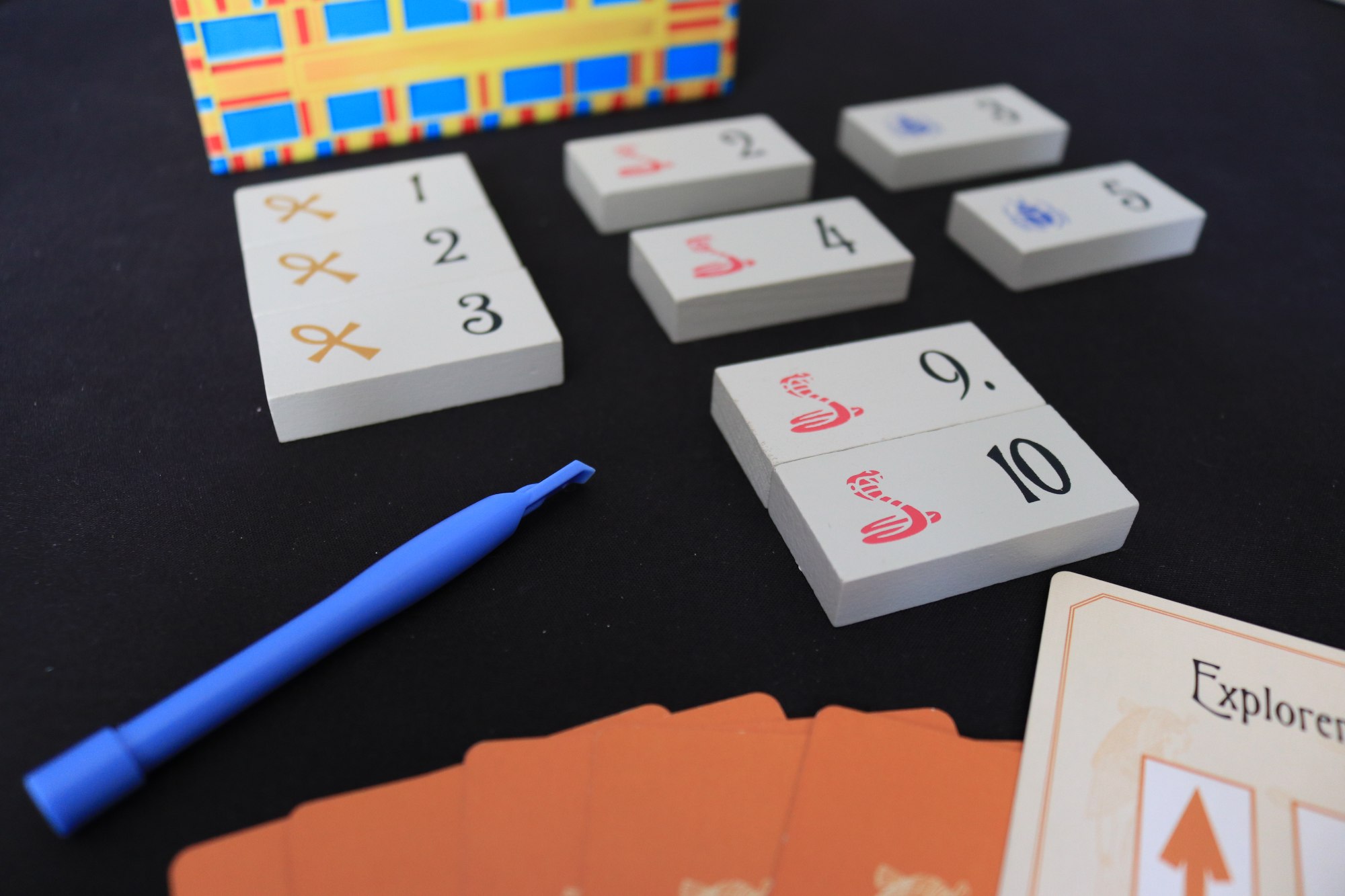
Tanis is a very straight-forward set collection game that awards players for collecting sequential groups of tiles. Each of the 4 tile types are numbered 1 through 10. For example, collecting a sequence of 3, 4, 5, 6, 7 Falcon tiles will award a player 10 points. Collecting just two sequential numbers only award the player 2 points at the end of the game.
Advanced Game Options
Tanis is a 2-player game that really shines when players are strategically taking tiles and using cards to ruin their opponents progress. Our first game of Tanis was very tame, taking tiles we needed and being a little too nice. Once we understood how the cards can disrupt our opponent, everything changed. Tanis can be a mean game as players look for chances to limit access to specific tiles and take away scoring opportunities.
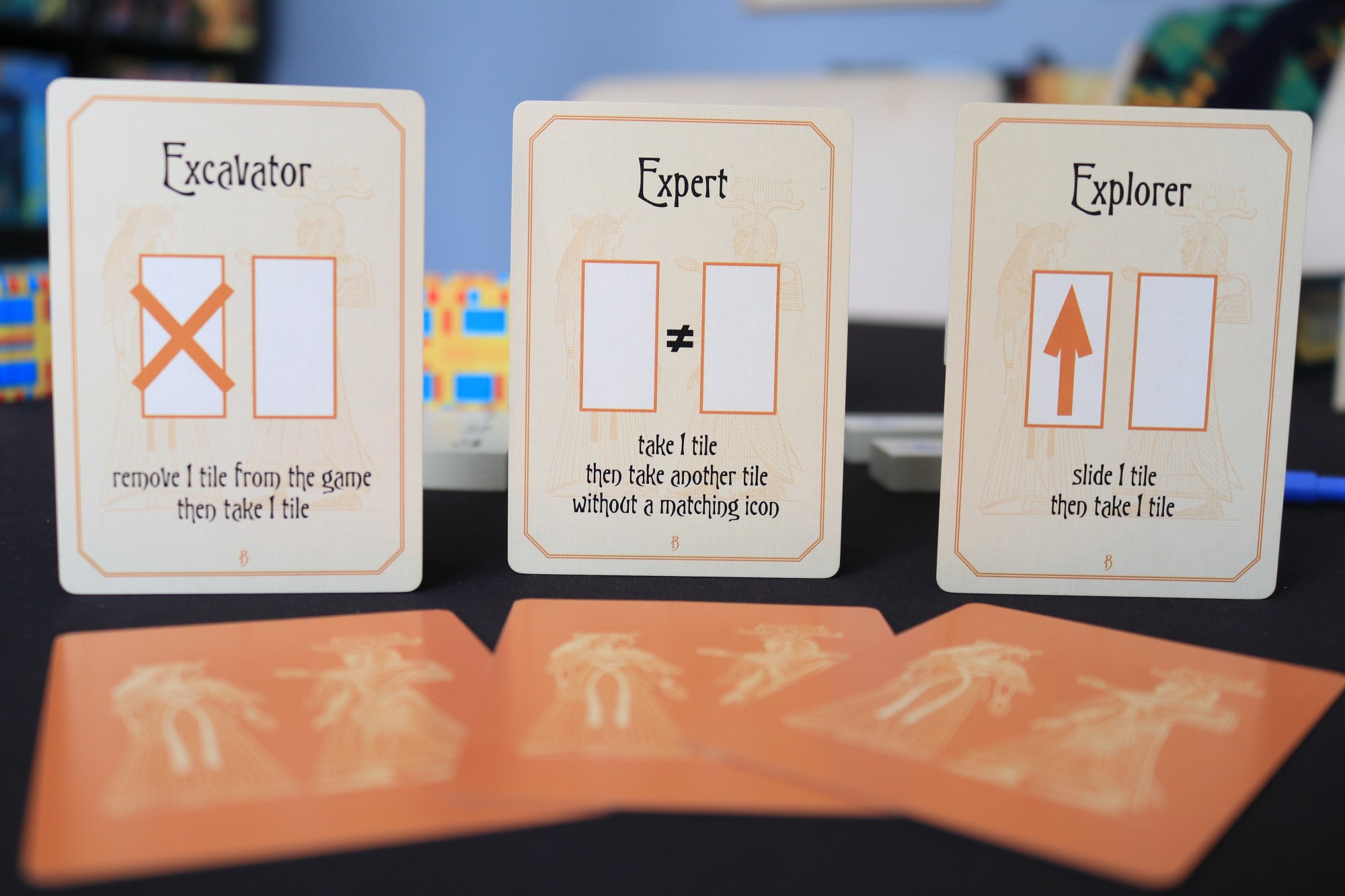
Once players are familiar with the game, there are a couple advanced options that are a must for gamers who want more of a challenge. God tiles are 8 new tiles that take the place of the 9 and 10 tiles in the game. Players score 5 points for 2 identical god tiles and only 1 point for a single god tile.
There are also 6 advanced action cards that add some great wrinkles to the game. These action cards give players more decisions to work that make the game more challenging. All the action cards can be mixed and matched based on the players preferences.
Final Thoughts
The base game of Tanis is easy to learn and great for adults and kids alike. I think many gamers will quickly jump into the advanced items in the box because it introduces deeper strategies without adding a lot of time to the gameplay.
Most games of Tanis are around 20 to 25 minutes and it’s not unusual to immediately jump into another game. We look for competitive 2-player games that have tight scoring mechanics and Tanis checks both of these boxes.
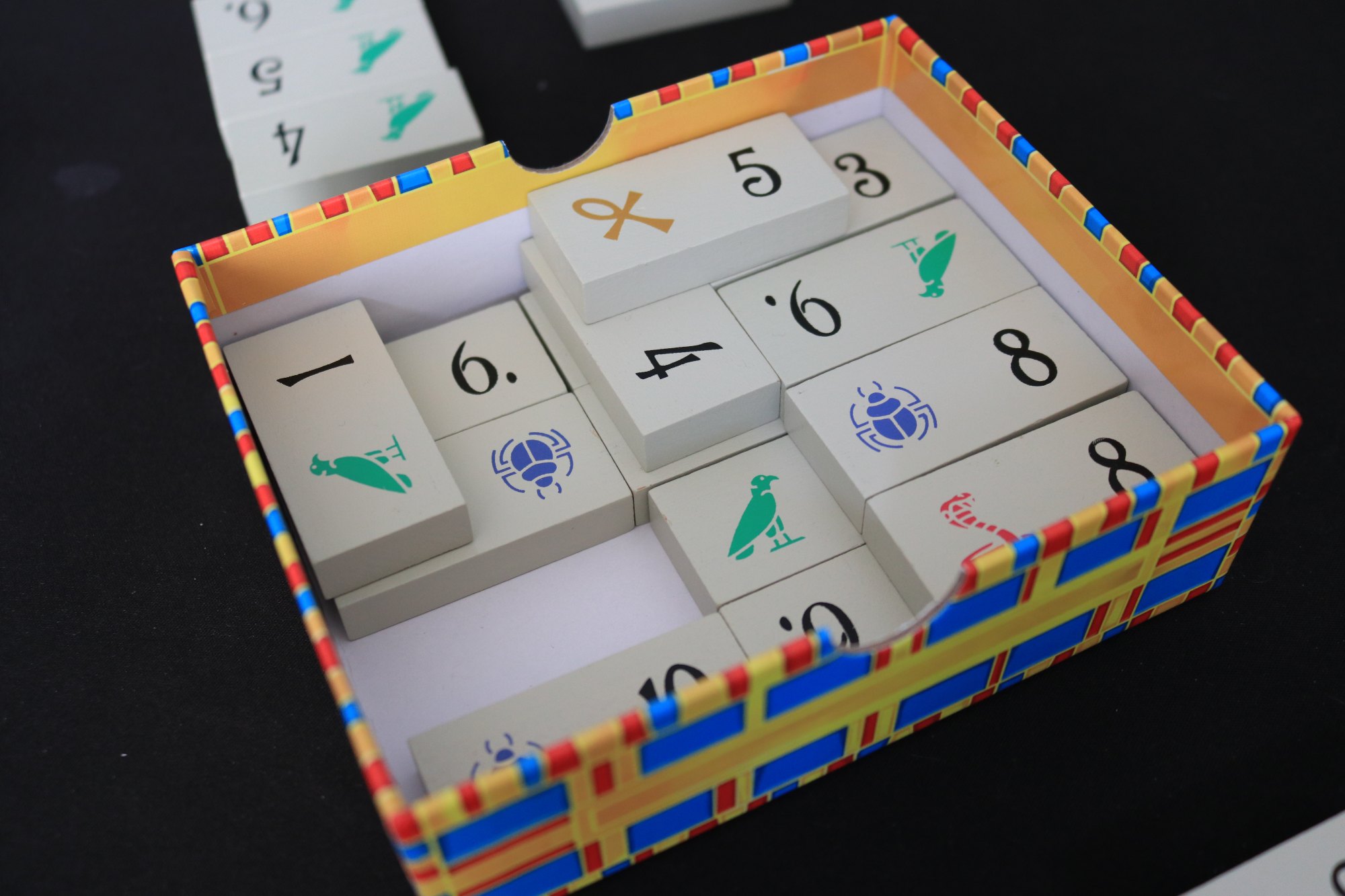
The component quality of the game is solid all around with nice wooden tiles, a thick central box and linen finish cards. The plastic digging tools are a nice touch but only come in handy when digging into a new layer of tiles.
Tanis works best when players really dig in to their competitive side, taking tiles that their opponent needs. When players are too nice, the game feels simplistic and the scores for both players climb.
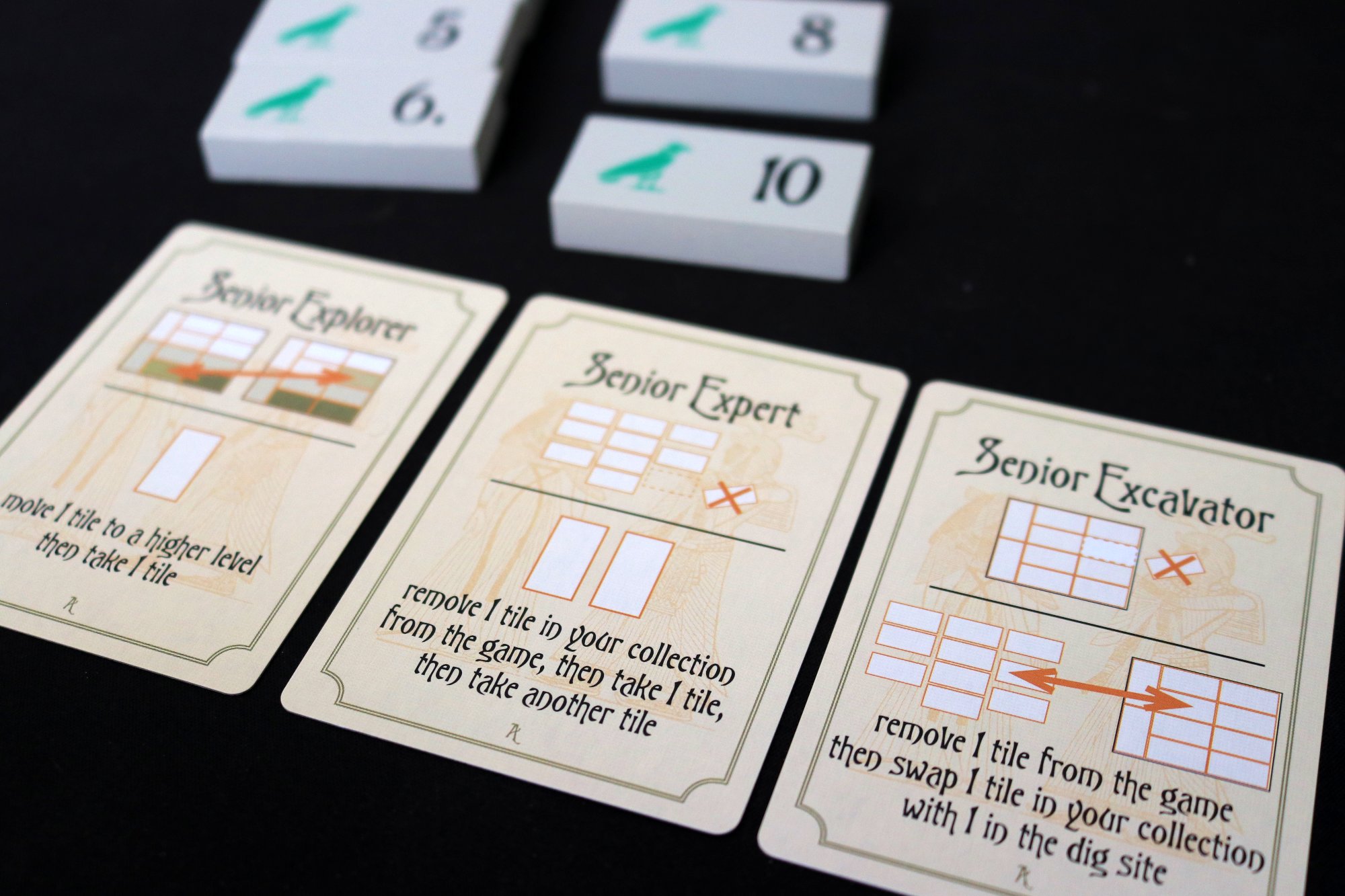
With advanced action cards and god tiles, I can see this game staying in our collection for a long time. This is another great design from Phil Walker-Harding and very accessible game for just about any age.
You can purchase Tanis from your local board game store or through the Eagle-Gryphon Games webstore.
This game was provided to us by the publisher for review. Read more about our review policies at One Board Family.
Highs
- Easy to teach and simple rule set
- Action cards make games competitive
- Advanced actions and god tiles increase the strategy
Lows
- Game feels too simple when opponents are too nice
- Peering into the dig box can be tough for shorter players
Complexity

Time Commitment

Replayability


